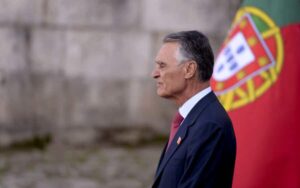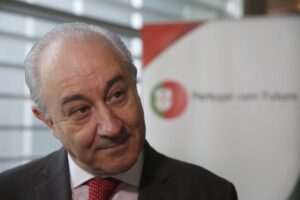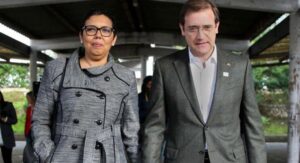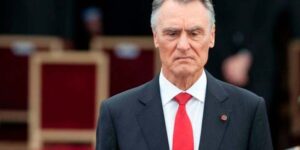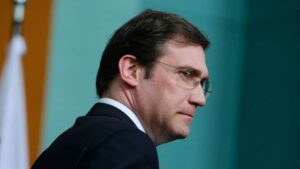President Cavaco Silva tried it but at the time (July 2013) no one appeared to listen – now the Prime Minister has taken up the appeal for national unity, calling all Portuguese to forget their political differences and pull together for the good of the country.
In an impassioned speech last Saturday, PM Pedro Passos Coelho declared: “I am quite certain that those who look out for Portugal will put political and personal interests aside to guarantee the country gets back on track, with all legitimacy and every expectation of fulfilling the ideal within its reach.”
Ramming the message home, he described the ideal as the “recovery of financial autonomy and return to having greater freedom to construct a better future, in a responsible way”.
At the same time, Defence Minister José Pedro Aguiar-Branco made a similar bid to bring the Socialist Party onside to ease the country’s return to financial markets.
Portugal’s political leaders appear positively magnanimous and full of potential – but the flipside is a country steeped in collateral damage: teachers and public sector workers in outrage, unions on the warpath, young people without hope and families in stress.
And on the horizon, the party-political posturing is never far away. In response to questions on how the PS is reacting to renewed pressure to get round the table, the party’s leader António José Seguro accused the government of “trying to neutralise the PS”, and deflect people’s attention from the swingeing State Budget for 2014.
As the saying goes, a week is a long time in politics. This story started bravely at the weekend, when Pedro Passos Coelho travelled to Cantanhede to address the Congress of Social Democrat mayors and councillors.
It was an altogether better arrival than a few months ago, when he was greeted by boos, hisses and chants of “Liar!”.
This time, police did not have to hold back an angry crowd, and Passos Coelho was able to get into his stride as he closed the event, launching into words full of hope.
“I am sending out a very strong appeal, once again, to all those in whatever party they may be active in, or have voted for, to ally themselves to this national effort, which is to conclude our programme (of financial assistance) so that we can think in another way from here forwards,” he told his audience.
Speaking directly to his own party’s councillors, newspapers described how Passos Coelho stressed the importance of “giving one’s best example” so that the “Portuguese believe” necessary changes are not simply being made in the short term but to sow “seeds that will allow the country to have a greater level of prosperity than it has managed in the past”.
“We have an opportunity in the coming years not just to change reasonably that which caused our misfortune in 2011, but to not return in future, as has happened in the past, to a situation where we have to borrow from elsewhere,” he added.
“The Portuguese people now know how much it costs when we don’t do our sums properly,” he stressed. “Without money and without debt, we don’t grow. This would not be enough for a balanced and developed country.”
Thus, once Portugal has come to the end of its programme of financial assistance “we will start a new challenge”, he said.
The challenge will incorporate “lessons from the past”: balanced accounts; the State giving an example of rational investment, and the need to have “all society mobilised and thinking about the future, investing in the future and believing in the future, much more than it has done many times in the past”.
The message came to its stirring crescendo hours before Defence Minister José Pedro Aguiar-Branco, speaking to journalists at the Dubai International Air Show, emphasised the importance of bringing the opposition PS party onboard in the interests of national recovery.
Quoted in Público newspaper as saying the PS should demonstrate “unequivocal availability” for the kind of political consensus that would ease Portugal’s return to the markets, Aguiar-Branco said: “The greater the political consensus, the greater the political stability, the more confident, secure and less painful will be Portugal’s return to the markets.”
Aguiar-Branco stressed that the way the PS responds to this “need for consensus” is “very important”. It could mean the country having the kind of exit from its adjustment programme “as Ireland had”, he added.
But PS leader António Seguro continues to play the party line and seems unlikely to be led anywhere. Talking to Público newspaper earlier in the week, he said political consensus is something that could only come after legislative elections.
“What the government wants is to tie the PS up, neutralise the principal party in opposition. It isn’t interested in any proposals. It hasn’t been for the last two years!”
Taking up his words, Correio da Manhã ran a poll this week on where people’s political attention is focused.
Seguro’s party continues to grow in popularity (up 7% to 36.9%) while Passos Coelho and his ministers lag behind with 28.4% of the country’s voting intentions, and the message that “most people affirm the government is worse than they had expected”.
It’s six months, in other words, since the increasingly quiet President of the Republic Cavaco Silva launched his appeal for political parties to come together in a government for “national salvation”.
At the time, political commentators were divided over the practicality of his masterplan. While it appeared valid in theory, the nation is reminded every week – by news of demonstrations and social upheaval throughout the country – that Portugal has a long way to go, and that stirring political speeches rarely translate into actions.
By NATASHA DONN news@algarveresident.com

